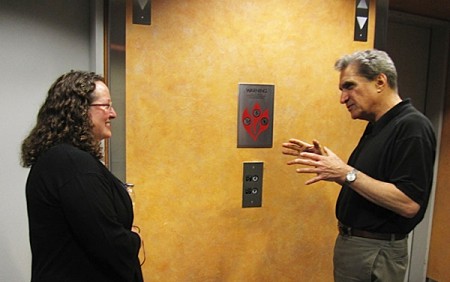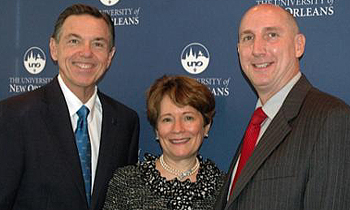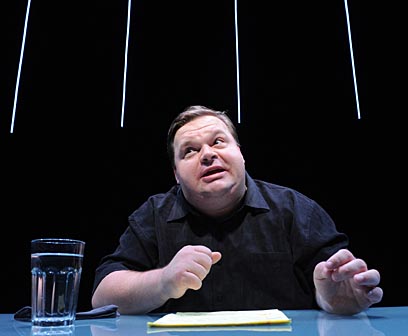Tag: Radio programs
WNYC reactivates Swing State Radio Network for debate coverage
The “Swing State Radio Network” launched by New York’s WNYC is returning for the upcoming presidential and vice-presidential debates. WNYC public affairs ...What to do about public radio’s ratings slide?
Now that Arbitron’s new ratings methodology is providing consistent and crunchable year-to-year data on radio listening, public radio programmers and producers are ...CPB IG audit questions spending by Capitol News Connection
An audit by the CPB Inspector General’s Office of Pundit Productions, the nonprofit that operated a public radio news bureau on Capitol ...Core value of PRPD: ‘Think audience’
When Public Radio Program Directors Association was formed 25 years ago, the idea that programmers should do things for an audience ...There’s no one formula for radio’s weekends
With national producers offering new programs and the Magliozzi Brothers retiring from Car Talk, program directors at public radio stations may have an opportune ...New youth-flavored variety entries move genre out of its Prairie Home
Once thought to have been left for dead after the vaudeville era, variety shows have re-entered the public radio reinvention conversation — ...NPR, WNYC collaborate to make ‘Ask Me Another’ weekly starting in January
NPR is teaming up with New York’s WNYC to make its trivia and quiz show Ask Me Another into a weekly offering, starting in ...NPR’s embedded bards riff on news through poetic lens
NPR’s All Things Considered now comes with a monthly dose of poetry, courtesy of poets who embed themselves among the network’s journalists...With new independent film, Ira Glass and TAL dream big
'Sleepwalk With Me,' is the program's latest (and biggest) attempt to break into the movie business.WGBH widens radio reach with PRI acquisition
WGBH’s acquisition of Public Radio International, announced July 26, positions the station and network to step up their longtime collaboration as co-producers.. ...NPR receives $1.5 million grant to support race and ethnicity reporting
...Like Planet Money, the as-yet-unnamed unit will establish its brand on multiple platforms, through reports for NPR’s radio shows, a blog and ...University regents call time-out on KUT signal expansion
One of public radio’s biggest split-format stations, Austin’s KUT, is pursuing a signal expansion that follows a familiar playbook for strengthening audience ...WWNO, NPR plan expanded newsroom to serve New Orleans
A group of public radio partners is preparing to launch a new local journalism nonprofit that will employ upwards of 20 people ...Daisey, onstage and off air, revives his ‘Agony and Ecstasy’
“There is no objective, journalistic version of the show,” Daisey said. “I will be, always, making constant lies of omission by leaving ...Output: Bitton’s homage to Piaf, STEM rock tunes from PBS, where 5-year-olds hide evidence (on PRX), ...
Decades ago, a teenaged Raquel Bitton locked herself in her San Francisco bedroom, suffering miserably from her first broken heart. Her only comfort ...









